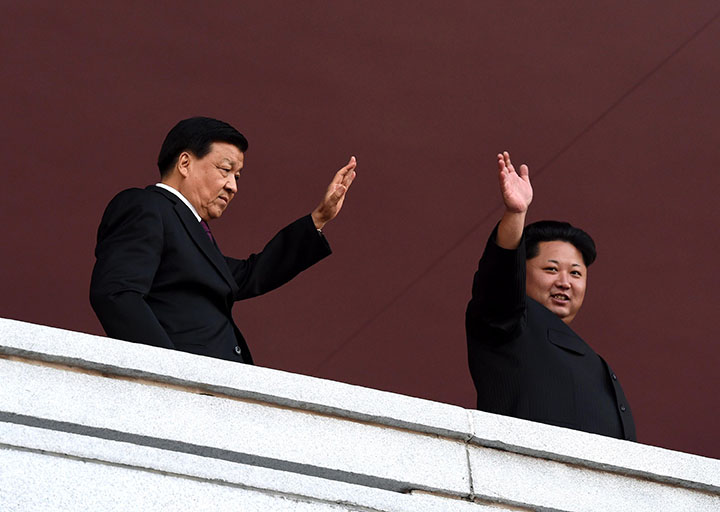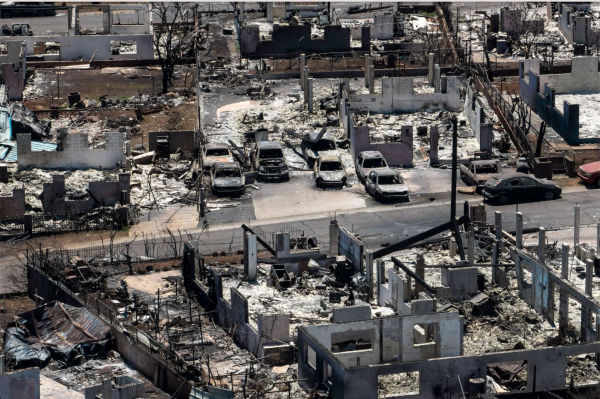President Trump Considers The North Korean Threat
Liu Yunshan, left, China’s Communist Party’s fifth-ranking leader, waves with North Korean leader Kim Jong Un during a parade in Pyongyang, North Korea, on Oct. 10, 2015. (Rao Aimin/Xinhua/Zuma Press/TNS)
President Trump is considering, among other options, military action against North Korea in an effort to halt its nuclear weapons program. The White House hopes that the seriousness with which it views the threat of nuclear weapons in North Korea might compel China to join with the United States in putting pressure on North Korea to prevent it from procuring more sophisticated weaponry.
Japan and South Korea have already been collaborating with the United States to apply economic and diplomatic pressure against North Korea; China has begun reducing coal imports from North Korea.
On Wednesday, Seoul and Washington launched their annual large-scale military exercise, which consisted of 300,000 South Korean troops and 17,000 American troops. This prompted North Korean leader Kim Jong-un to order the preparation of his troops for a “merciless strike.”
Defense ministers from the United States, South Korea, and Japan pledged to strengthen intelligence communications in the aftermath of North Korea’s recent ballistic missile test.
Secretary of Defense James Mattis reportedly told South Korean Defense Minister Han Min-Koo on Tuesday, “any attack on the United States and its allies will be defeated, and any use of nuclear weapons will be met with a response that is effective and overwhelming.”
The rising tensions has sparked concern in the region. While President Trump has promised to maintain current agreements in Asia, some nations are bracing for a drastic shift in American policy.












